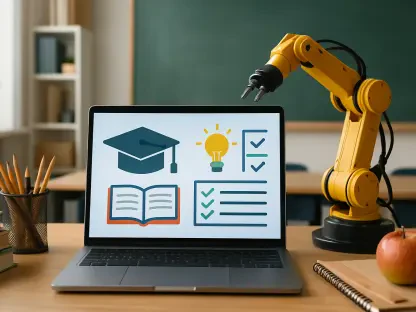In a region where educational disparities often mirror deep societal divides, South-Asian education unions are emerging as vital forces for change, championing equality, health, and well-being for adolescents. Their mission, brought into sharp focus at the Multi-Stakeholder Forum held from September 23rd to 25th in the Asia-Pacific region, organized by Education International Asia-Pacific (EIAP) alongside partners like UNESCO and UNICEF, reflects a powerful commitment to transforming education systems. Over 160 stakeholders, including teacher union representatives, government officials, and civil society members, convened to strategize on empowering teachers to deliver curricula that prioritize gender equity and holistic student development. The urgency of this work lies in the recognition that education is not merely about academics but about equipping young people to navigate and reshape a complex world. As unions push for systemic reforms, their efforts signal a broader movement to ensure that schools become spaces where every student can thrive, regardless of background or barriers.
Empowering Educators as Catalysts for Reform
South-Asian unions are placing educators at the heart of a transformative agenda, acknowledging their indispensable role in fostering adolescent health and well-being. A key insight shared at the forum by EIAP Regional Coordinator Undarmaa Batsukh emphasized that student growth is intrinsically linked to teacher well-being. When educators are supported with respect and resources, they can create nurturing environments that allow students to feel valued and secure. Unions across the region are advocating for policies that address teacher mental health and professional dignity, ensuring they have the capacity to focus on guiding the next generation through both academic and personal challenges. This push for support is not just about individual teachers but about building a foundation where education can serve as a tool for broader societal equity.
Beyond personal well-being, South-Asian unions are highlighting the importance of fostering meaningful teacher-student relationships as a pillar of effective learning. Forum discussions, including perspectives from representatives like Mike Thiruman of Singapore’s STU, underscored the need for school systems to allocate time for building these connections. Heavy administrative workloads often distract educators from their core mission of mentoring and teaching. Unions are therefore campaigning for reduced non-teaching duties, allowing teachers to invest in interactions that address students’ emotional and social needs alongside their intellectual growth. This shift in focus is seen as essential for creating classrooms where adolescents can openly discuss issues like identity and health, paving the way for a more inclusive educational experience.
Advancing Comprehensive Sexuality Education
A cornerstone of South-Asian unions’ efforts to transform education lies in their strong advocacy for Comprehensive Sexuality Education (CSE) within national curricula. CSE provides young people with crucial knowledge about their rights, bodies, and identities, serving as a mechanism to dismantle stigma and promote gender equality. However, forum discussions revealed that educators often encounter resistance due to cultural sensitivities and inadequate preparation. Unions are stepping up to demand targeted training programs and accessible resources to equip teachers with the confidence and skills needed to handle such sensitive topics effectively. This initiative aims to ensure that CSE becomes a normalized part of education, empowering students with information that can shape healthier, more informed life choices.
Despite the clear benefits of CSE, significant obstacles remain, as highlighted by union representatives from countries like Thailand and Indonesia during the forum. Educators frequently find themselves overwhelmed by additional responsibilities unrelated to teaching, leaving little energy to address complex student needs. Furthermore, systemic support for CSE is often inconsistent, with funding and policy frameworks varying widely across regions. South-Asian unions are pressing for sustained investment and clear governmental directives to integrate CSE comprehensively into schools. By advocating for a structured and well-supported rollout, they aim to move beyond isolated efforts and establish CSE as a consistent, impactful component of education that prepares adolescents to navigate personal and societal challenges with resilience and understanding.
Promoting Gender Equity and Social Justice
South-Asian unions are redefining education as a critical arena for advancing gender equity and social justice, recognizing that many systemic inequalities take root within classroom dynamics. Insights from forum participants, such as Prof. C. Kwe from the Philippines, framed education as a means to confront and dismantle oppressive structures that limit students’ potential. By advocating for curricula that challenge outdated stereotypes and promote fairness, unions are striving to equip young people with the tools to critically engage with and transform their communities. This approach positions teachers as not just instructors but as activists who can inspire students to envision and work toward a more just society, free from the constraints of gender-based discrimination.
This commitment to equity also involves ensuring that every student, no matter their circumstances, has access to an education rooted in dignity and knowledge. As Kusmita from Nepal’s ISTU emphasized at the forum, inclusivity must be a non-negotiable priority, even when faced with societal pushback or resource constraints. South-Asian unions are tirelessly working to influence policy and community attitudes, urging stakeholders to view education as a powerful equalizer. Their advocacy extends beyond academic content to encompass the creation of safe, supportive learning environments where marginalized voices are heard and valued. This holistic vision seeks to address the root causes of inequality, making education a catalyst for lasting social change across the region and beyond.
Building Systemic Support for Lasting Impact
The transformative potential of South-Asian unions in education hinges on the establishment of robust systemic support for teachers and schools. Forum discussions and related global reports consistently pointed to the need for adequate resources, training, and policy frameworks to enable educators to fulfill their roles as agents of change. Without these elements, even the most dedicated teachers struggle to implement innovative curricula or address students’ diverse needs. Unions are therefore advocating for comprehensive reforms that include funding for professional development and infrastructure improvements, ensuring that education systems are equipped to prioritize both teacher well-being and student outcomes. This systemic approach is seen as vital for sustaining long-term progress in equality-focused education.
Moreover, the challenges faced by South-Asian educators are not isolated but reflect global trends, as seen in parallel struggles in regions like Ethiopia and Taiwan. Unions are calling for international solidarity to share best practices and tailor solutions to local cultural and economic contexts. The forum underscored the importance of collaboration among governments, civil society, and educators to create cohesive strategies that address both classroom-level and societal barriers. By fostering continuous learning through workshops and participatory sessions, South-Asian unions aim to build a network of empowered educators who can adapt and innovate in response to evolving challenges. This collective effort is crucial for ensuring that the push for equality in education translates into tangible, lasting improvements for adolescents across diverse communities.
Reflecting on Progress and Future Pathways
Looking back at the impactful discussions from the Multi-Stakeholder Forum and related global education narratives, it became evident that South-Asian unions played a pivotal role in advocating for a reimagined education landscape centered on equality and well-being. Their persistent efforts tackled systemic barriers head-on, emphasizing teacher support and inclusive curricula as non-negotiable priorities. The shared resolve among diverse stakeholders to empower educators through resources and policy reform marked a significant step forward in addressing the intertwined challenges of gender inequality and adolescent health.
Moving ahead, the focus must shift to actionable strategies that build on this momentum. Governments and educational bodies should commit to sustained investments in teacher training and curriculum development, particularly in areas like Comprehensive Sexuality Education. Additionally, fostering partnerships across borders can help adapt successful models to local needs, ensuring relevance and impact. South-Asian unions should continue leading this charge, amplifying their advocacy to secure the systemic changes needed for education to truly become a vehicle for equity and empowerment in the years ahead.









